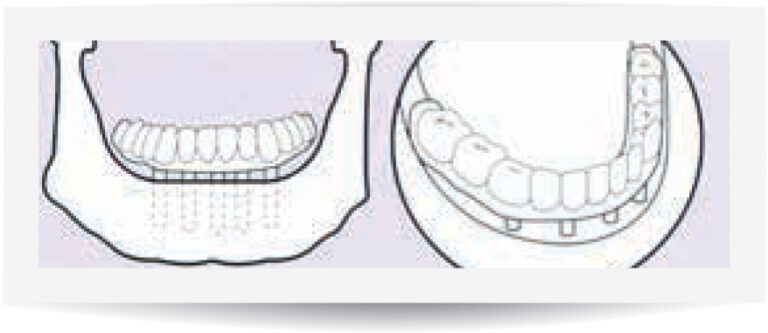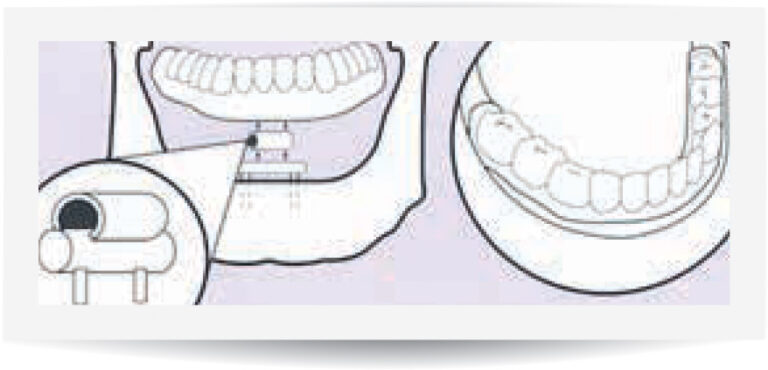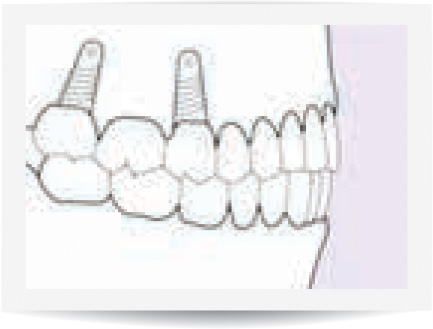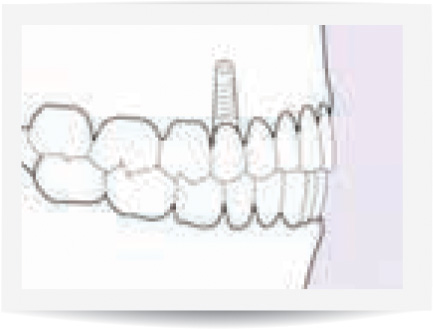What Are Dental Implants?
Dental Implants have become popular as a result of successful advances in oral surgery techniques and improved bio-materials. Dental implants are made of various bio-materials, usually titanium. These are surgically placed into the jawbone to anchor permanent replacement teeth. Replacement teeth are then attached to the part of the implant that projects from the gums.
Approved and tested dental implant systems are very successful. In fact, some have lasted more than 20 years with a better than 90 percent success rate. Patients who have good oral hygiene habits and regular dental checkups can enjoy implants that last a lifetime.
Your Patient Guide
Dental Implants
What are the risks of dental implant surgery?
The risks of dental implant surgery are similar to other oral surgical procedures, which include bleeding and infection. Specific complications, such as sinus problems or numbness due to nerve injury, will be discussed by your dental team. Occasionally an implant may loosen from the bone, requiring it to be removed. Due to individual differences, implant success cannot be guaranteed.
What are the advantages of dental implants?
Dental implants replace your missing teeth and help elevate your sense of self-confidence when you chew, talk or eat in public. Implants will give retention and stability to dentures, thus preventing sores or clicking noises when you talk. Implants eliminate the need to grind down adjacent natural teeth for bridgework. Implants can eliminate the need for a removable partial denture.
What is the recovery period?
The recovery period will vary among individual patients, but may last one to two weeks; you may experience slight pain, bruising or swelling in the area of the surgery.
Postoperative pain medication and antibiotics will be prescribed by the surgeon to aid in the healing process. You may require a liquid diet during the first few days after surgery. Dental implants require a time commitment from three to nine months. They may also require additional oral hygiene home care for optimal maintenance.
Am I a candidate?
Fifty-five million teeth will be removed this year as a result of infection, gum disease, trauma, accident or injury.
When teeth have been removed, several problems can occur. The remaining teeth shift, rotate and become crooked, causing a bad bite and making it difficult to eat or chew properly. Unsightly spaces or large gaps between your teeth may cause embarrassment.
Ask yourself these questions to determine if dental implants are the optimal solution for you:
- Do I feel confident when I smile, speak or eat?
- Do my dentures flop around or cause sore spots when I chew?
- Do I hide my smile because of unsightly space between my teeth or missing teeth?
- Are my teeth loose and need to be stabilized following treatment for advanced gum disease?
- Do I regularly need my dentures relined because of my bone resorption?
Did You Know?
Titanium dental implants have been placed extensively since the 1970’s. Dental implants have the highest success rate of any implanted surgical device.
How do dental implants work?
Dental implants replace the form and function of missing teeth. They support replacement teeth in the same way that your tooth roots support your natural teeth. Various replacement options are available.

Dental implants can support replacement teeth for an entirely toothless jaw.

Dental implants can provide stability and retention for a complete denture.

Dental implants can be used as anchors to support a fixed bridge.

Dental implants can be used to replace a single tooth.
Dental implants: a three-step process
The first step is the surgical placement of the implants into the bone. This is usually done in the dental office, but in some instances a brief hospital stay may be necessary. The surgery will be done with local anesthesia; a general anesthetic may be used to ensure your comfort during surgery. After the implants are surgically placed into the bone, the gums are covered over the implants for a healing period of three to six months.
The second step is the surgical exposure of the top of the implant and attachment of the abutments to the implant. This is a short procedure and usually requires only local anesthesia.
The third step is the restorative phase. The restorative dentist will take impressions of your abutments, teeth and jaws. He or she will then fabricate a prosthesis that will attach to the dental implants. This will require several visits and can take up to a month to be totally completed.
What precautions are taken?
First, you need to discuss your restorative options with your dentist. Dental implants are usually performed by a dental team consisting of a surgeon (oral/maxillofacial/periodontist) and restorative dentist. The first visit will consist of taking a medical and dental history and completing a thorough oral examination.
X-rays of your remaining teeth and bone, intraoral photographs and impressions of your remaining teeth will be taken. The dental team will use this information to formulate a treatment plan. The second visit will consist of explaining and discussing treatment options.
What Our Patients Say?
We accept all major insurance plans.
We accept a number of insurance plans to help cover the cost depending on your individual needs.
